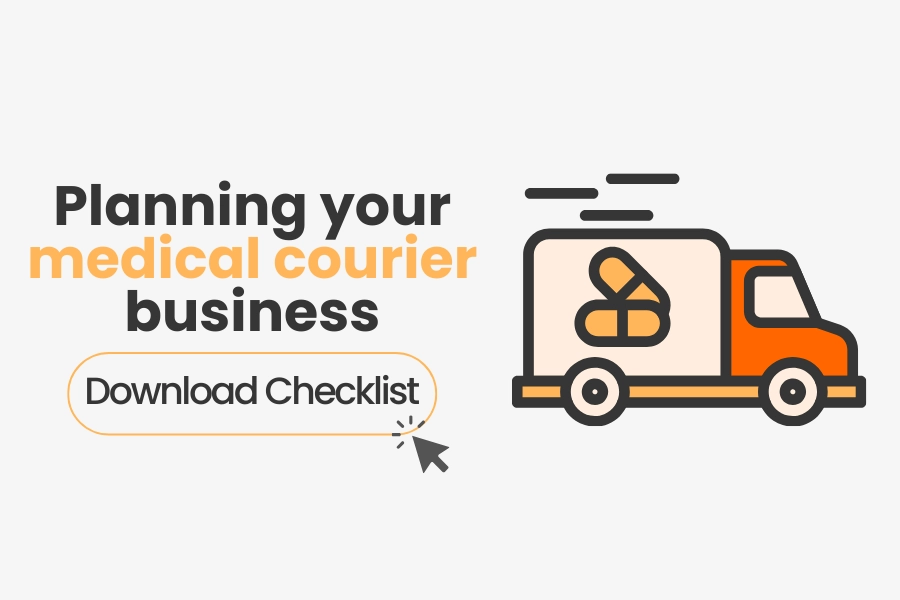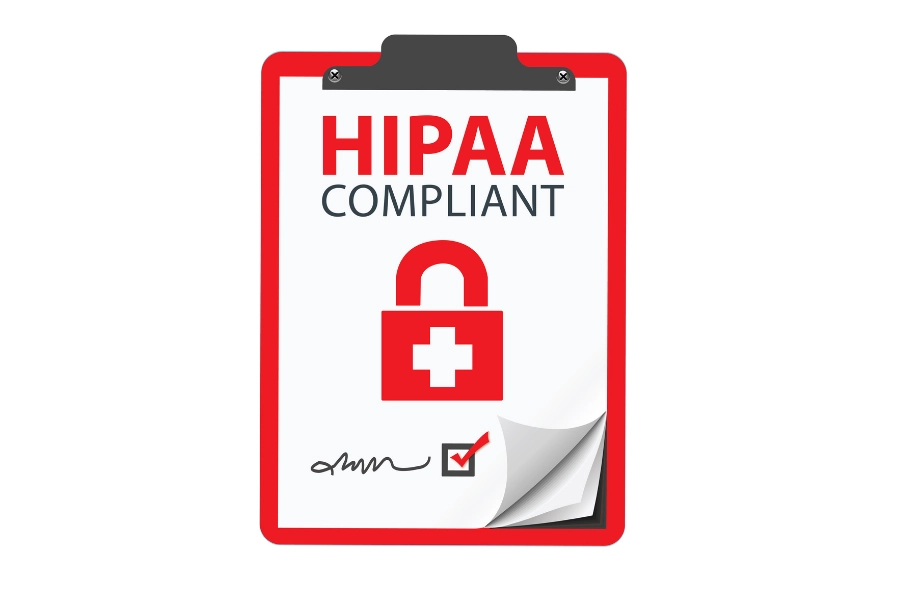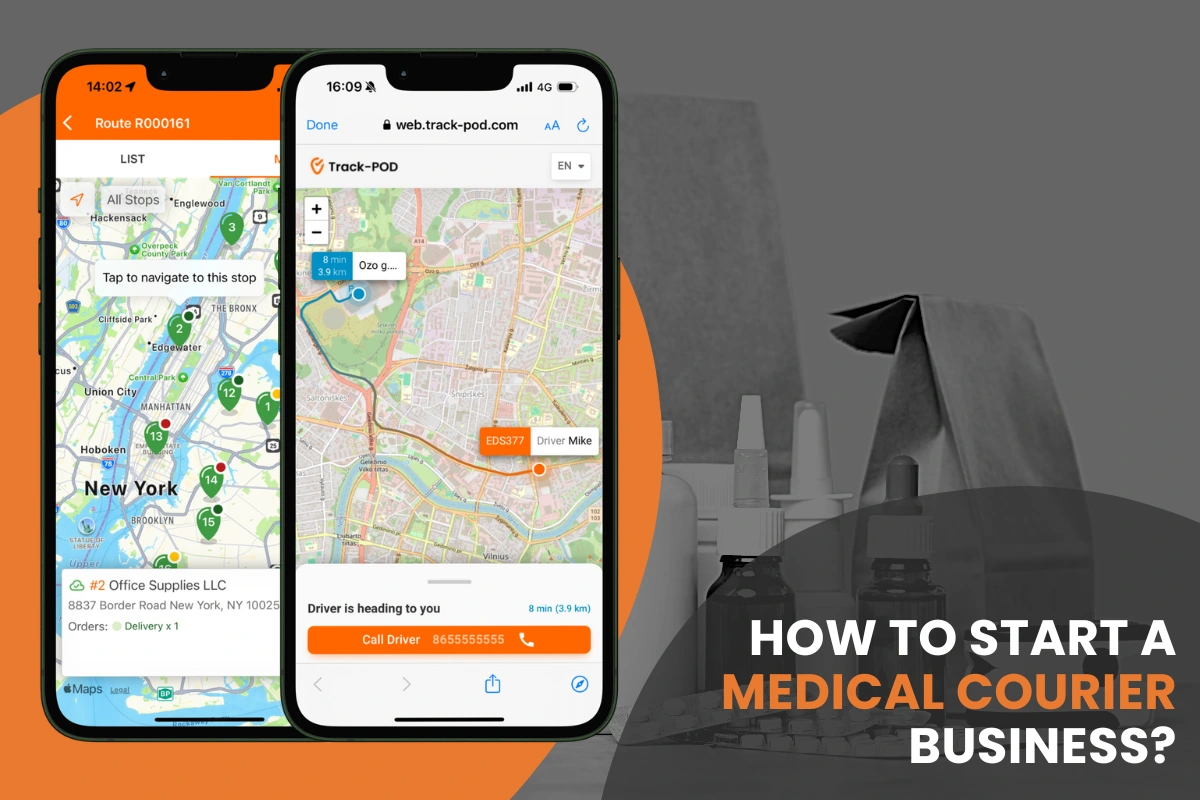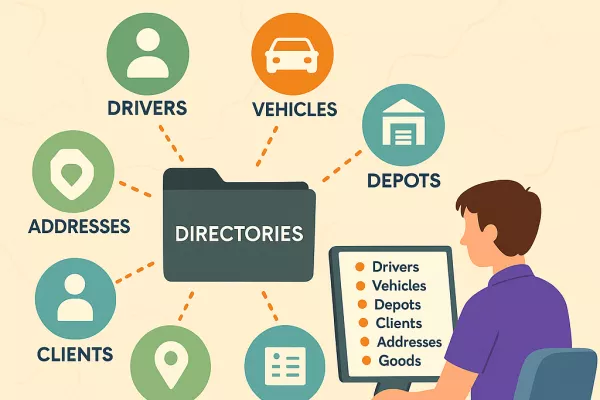- Industries
- Best Practices
How to start a medical courier business?

by
Mike Foster
March 07, 2024
Medical courier businesses are significant today, especially in healthcare's final mile delivery. They ensure medical supplies, tests, and equipment get where they need to go quickly, which helps patients and keeps things running smoothly.
This business is growing fast and could be worth $31.51 billion by 2026.

However, many people who want to start their business struggle because they need to learn more about how it works. The recent pandemic made these services even more necessary but showed that being unprepared or informed can lead to missing out on significant opportunities.
However, you can do well if you learn the right stuff and use good tools and strategies.
In this article, we'll discuss what you need to know to start your medical courier service successfully.
Overview of medical courier services and delivered items
A medical courier business helps move essential health-related items quickly and safely.
They ensure everything follows the rules and keep things like medicines and lab tests in good condition. This service is vital to caring for patients, doing medical tests, treating illnesses, and responding to emergencies.
Medical courier businesses play a crucial role in the healthcare industry by transporting many essential items.
Here are some key aspects of the types of items they handle:
Pharmaceutical products
Medical courier companies move different health-related products like prescription medicines, non-prescription drugs, vaccines, and regulated substances. These goods often need to be carried in a safe way that controls their temperature to keep them working well and meet legal rules.
Medical specimens and laboratory samples
These include blood, urine, tissue samples, and tiny living organisms that doctors need to study diseases. They're essential for doing research and treating illnesses. Special delivery services ensure these items get quickly and safely to labs where they can be checked and studied.
Medical equipment and devices
Medical courier companies move various medical tools and devices like scanners, surgery tools, implants, and long-lasting medical gear. These items are essential for medical procedures, patient care, and treatment planning.
They need to be handled and moved with a lot of care.
Documents and records
Medical courier services don't just deliver physical items; they also carry important papers and records for healthcare. They transport patient health records, prescription orders, lab reports, and office paperwork.
Doing this helps doctors and other healthcare workers share information quickly and easily.
Supplies and consumables
Medical courier companies transport different healthcare items like bandages, needles, IV liquids, surgery tools, and protective gear. They must deliver these supplies quickly to keep enough stock for uninterrupted medical services.
Strategies for planning your medical courier business
For your medical courier business to thrive and last, learning how the healthcare market works and what rules you must follow is essential.
The healthcare world has a lot of rules and standards in place that ensure patients are safe, their privacy is protected, and they're getting good care.
Also, knowing the ins and outs of the healthcare market lets you spot new trends early on, guess what needs might come up next, and adjust your services to fit what healthcare providers are looking for.
This knowledge means you can set your business apart from others, stand out from the competition, and grab hold of chances to make more money.
Let's have a look at some of the strategies on how to plan your courier market business:

Conduct comprehensive market research
Doing good market research helps you know what's happening in the business world, see your competitors, and determine what people want. This is important for making intelligent choices for your business.
You can ensure your medical courier services match people's needs by looking into how the market works, seeing new chances, and understanding what customers like.
This gives you an advantage over others in the same field. Also, by doing deep research, you can prepare for any problems that might arise, reduce risks, and put your business in a great spot to do well over time.
Define your niche for specialized services
Choosing a specific area to focus on in the medical delivery business helps you meet specific needs better, making your company stand out and draw in more of the right customers.
You could concentrate on offering quick same-day deliveries, moving items that must be kept at certain temperatures, or delivering precisely for areas like drug research or organ transplants.
Being exceptional in your work shows your service is different and better than regular delivery companies. This way of doing things makes customers happier and more likely to stick with you, helping your business grow over time.
Implement sound financial planning
Good financial planning is key to keeping your business strong and making money. It involves creating a budget, predicting how much money you'll make, and determining the best ways to spend it.
When you understand what your business needs financially and what resources you have, you can set intelligent money goals and use your resources wisely.
This means saving some money for buying equipment, advertising, running day-to-day operations, preparing for unexpected events, and planning for growth in the future.
With solid financial planning at its core, your medical courier business will be better equipped to handle tough times and make the most of good opportunities.
Clearly define your services and offerings
Explaining what you do in simple terms helps people know what to expect from you. This is important whether you deliver packages quickly, take special care of medical samples, or do regular deliveries.
When people understand your services, they can decide if your offer matches their needs. Being open and transparent like this makes people trust and respect your business more, mainly if you deliver medical items.
Plus, when everyone knows exactly what to expect, it reduces confusion and mistakes in getting the job done.
Craft an effective marketing strategy
A good marketing plan helps people discover your business, see your uniqueness, and attract new customers. You can attract more people to your medical courier service by marketing online, attending networking events, and creating ads for specific groups.
Procure essential equipment and resources
Buying the right tools and resources helps deliver medical items quickly and safely, making customers happy and trustful. This includes having vehicles that can keep things at the right temperature and using unique packaging materials.
With these things, you can meet your clients' needs well and provide excellent service.
Foster strategic partnerships and relationships
Creating good relationships with hospitals, labs, and suppliers makes your business more trustworthy, helps you meet more people, and brings new chances.
Working with essential partners lets you use their unique skills, make things run smoothly, and get more recommendations. This all helps your medical delivery business grow and succeed.
Establish efficient operational procedures and protocols
Creating simple, step-by-step rules for how things are done helps ensure services run smoothly and customers are happy. By doing regular tasks like taking orders, sending them out, and keeping track of deliveries the same each time, you can work faster, more reliably, and provide better service.
Also, having a plan for dealing with unexpected problems ensures you can keep doing a good job even when surprises arise.
Legal and certification requirements for starting a medical courier business
Starting a medical courier business requires compliance with various legal regulations and certifications to ensure the safe and secure transport of medical items.
Here are the key requirements:
HIPAA compliance
Medical delivery companies must follow special rules under HIPAA, a law protecting patients' private information.
This means they must handle everything safely, ensure electronic data is secure through encryption, and train their employees to keep patient information confidential according to these rules.

Transport regulations for medical specimens
Moving medical samples, like blood or tissue, needs careful handling to keep them safe and clean. This means following strict rules from groups such as the Department of Transportation (DOT) and the Clinical and Laboratory Standards Institute (CLSI).
State-specific requirements
Every state has its rules and needs for starting a medical courier service. This might mean you must get a unique driving license, sign up with the state's health office, or get specific permissions to carry medical items.
Certifications
Medical courier businesses don't have to get specific certificates, but having them can make clients trust and believe in their services more.
These could be certificates showing they know how to move medical items properly, handle medical samples safely, or are trained specially in managing healthcare deliveries.
Insurance coverage
Medical courier companies need the correct liability, cargo, and workers' comp insurance. This helps them stay safe from any problems or risks when they move medical items around.
Marketing and growing your medical courier business
To expand your medical courier service, implement targeted marketing strategies to reach potential clients in the healthcare sector:
Targeted outreach
Find hospitals, clinics, pharmacies, and labs near you and talk to them about what you offer. Go to events like trade shows and meet-ups in your field to connect with influential people.
Digital marketing
Use online platforms like social media, improving your website's search results (SEO), and specific internet ads to let more people know about your medical delivery services. Make helpful articles or videos that show off your knowledge and the good things about choosing your services.
Referral programs
Start a program where current clients and business partners can recommend new customers to your medical courier service. Give them discounts or prizes for every successful recommendation they make to keep them interested in bringing more people.
Leveraging
efficient customer referrals can significantly enhance this strategy by streamlining the process and making it easier for your existing clientele to bring new customers on board.
Build a reputation for reliability
Always show how reliable, safe, and by-the-book you are in all your ads and talks. Talk about how well you follow important rules like HIPAA and share stories or feedback from happy customers to gain people's trust and prove credible.
Offer value-added services
Make your medical delivery service stand out by adding extra features. Offer options like tracking deliveries as they happen, exceptional temperature control for items that need it, or flexible delivery times to suit each customer's needs. Talk about these special offers in your advertising to attract customers who want the best service.
Community involvement
Join in on activities within your local area, like health fairs, supporting events with sponsorship, or helping out with healthcare causes as a volunteer. Doing this shows you care about the community and helps more people know who you are, building a good reputation among those who might need your services.
Setting up your business operations
Setting up a medical courier service involves careful consideration of logistics and personnel to ensure efficient and safe operations:
Choosing the right vehicles
Choose vehicles that are good for moving medical items, like vans or trucks, that can keep things cold and have safe storage areas. Make sure these vehicles are kept in good condition and follow safety rules.
Storage conditions for medical supplies
Set up storage areas that have the right temperature settings and are secure to keep medical supplies safe. Establish rules for managing and rotating stock so that nothing gets spoiled or contaminated.
Technology for tracking deliveries
A high-tech tracking system, such as Track-POD, can track deliveries as they happen. This tool helps plan the best routes, confirm deliveries with the electronic proof of delivery (ePOD) functionality, and talk to customers better. It makes things more reliable and keeps customers happy.
Track-POD is an advanced software that helps medical delivery services work better and faster. It lets you plan the best routes, watch deliveries as they happen, and show customers proof when their items are delivered.
This tool has cool features like getting signatures electronically, scanning barcodes, and setting up how deliveries should work to make things more efficient and accurate. Plus, it works well with systems you already use, making it easy to share information back and forth.
By using a medical courier driver app, businesses delivering medical supplies can make their customers happier, spend less money on operations, follow the rules easily, and stay ahead in the busy world of healthcare logistics.
Hiring and training staff
Hire people who know logistics and transportation, ensuring they understand how to manage medical items safely. Teach them about safety rules, health information privacy laws, and how to handle things to meet industry standards.
Focus on safety and security
Set up strict rules for dealing with medical items to lower the chance of them getting dirty or damaged while being moved. Regularly check safety procedures and train staff to follow safety steps well.
Navigating challenges in medical courier business operations: solutions and best practices
In the busy world of medical delivery companies, there will always be problems. These can include rules they must follow or issues with getting things from one place to another.
But, if these companies plan well and develop sound strategies, they can overcome these problems. These businesses can handle challenges by knowing what usually goes wrong and doing basic things right, like training their staff well or using technology better.
This will help them grow steadily over time. Simple solutions can make their work smoother, keep customers happy, and help them succeed in the challenging market of healthcare deliveries.
Lack of proper staff training
Training medical couriers well is critical but sometimes ignored. These companies should teach their staff to follow the rules, correctly handle and store medical items, protect patient privacy, and react in emergencies.
If the staff isn't trained correctly, they might not handle medical stuff safely, keep them stored properly, respect patient privacy or know what to do in an emergency. Medical couriers often begin working with little training, leading to mistakes or breaking the rules.
Training programs need to teach:
- The rules about keeping patient information safe (HIPAA). Everyone needs to know the laws that protect patients' privacy and how to make sure information stays secure.
- How do you correctly deal with medical things like blood tests, body samples, medicines, etc? It's essential to be extra careful with items that can break easily, go bad quickly or are dangerous.
- How to use storage equipment that controls temperature. People must learn to check if these containers work correctly when moving them around.
- What to do in emergencies like spills, accidents, or if something isn't delivered on time. Training should prepare staff on what steps to take during such situations.
- Making routes and navigation better to save time and do things more efficiently. Talking well and giving good customer service helps build strong relationships with health partners.
Training enough can prevent errors and problems in following rules, which can hurt how patients are cared for. Putting money into complete training makes medical delivery services more reliable, safe, and compliant with regulations. It's essential for providing top-notch service.
Difficulty achieving regulatory compliance
Medical delivery services must follow many rules that control how they move and care for medical things, like tests, medicine, and patient records.
To keep up with these rules as they change, these services must regularly train their staff, write down their steps for doing tasks, check their work often, and make sure everything is done well.
Smaller companies can get help with these complicated rules by hiring experts in medical deliveries. However, all delivery services dealing with private patient information or medical products must put in place the necessary protections.
Maintaining patient confidentiality
Medical couriers carry private health information and must follow privacy rules like HIPAA. Their team must learn to keep this information safe, especially when moving or storing it.
This means using secure containers that can't be easily opened and ensuring a clear record of who has handled the information. Couriers should also have methods to keep patient samples anonymous during transport but still be able to know where they are.
All private health details should be kept safe through encryption at every delivery step. There must also be straightforward ways for staff to report privacy issues or mistakes.
Checking who looks at the private health info and getting rid of records safely is essential, too. Medical couriers have the tough job of keeping track of deliveries without invading someone's privacy.
However, with continuous effort and proper training, these businesses can ensure they're responsible while protecting people's personal health details.
Proper storage conditions
Medical courier companies face a significant challenge in keeping their deliveries at the right temperature. This is important because medical items like medicines, vaccines, and lab samples need to be kept cool or frozen to stay good. These items can get ruined if the trucks or storage areas don't have good air conditioning or fridges.
To prevent this, couriers use unique systems in their vehicles and warehouses that control temperature and humidity. They constantly check these conditions and keep records to prove they're doing it right. If anything goes wrong with the temperatures, they have to fix it fast.
Handling sensitive items
Medical couriers are responsible for safely transporting sensitive items and information. This requires specialized processes and precautions to protect patient privacy and identity.
- Specialized packaging - Medical samples, medications, and records must be packaged securely to prevent damage, contamination, or loss. Couriers need proper containers, insulation, cushioning, and tamper-evident seals.
- Identity protection - All identifying patient information must be kept confidential. Labeling and packaging should not reveal names or other personal details. Digital files must be encrypted and securely transferred.
- Secure handoffs - Exchanges of sensitive items between healthcare facilities and couriers present a vulnerability. Chain of custody must be maintained using tracking logs, ID checks, package inventories, and secure handoff zones.
- Disposal protocols - Outdated or unused medications, specimens, and waste must be disposed of properly. Couriers need strict biohazard disposal procedures to avoid contamination.
- Temperature controls - Some medical items require refrigeration or freezing during transport. Couriers need special cold chain packaging, thermometers, gel packs, and refrigerated vehicles, and storage units.
Keeping private and safe while moving important medical things is a big job for those who deliver them. If they get the proper training, follow set steps, and use special gear, these delivery people can ensure that essential items are moved safely.
Route optimization challenges
Ensuring efficient delivery routes is tricky for running a business delivering medical supplies. It's crucial because these deliveries often need to be quick, and planning the best route requires considering changing traffic and possible hold-ups. If a vehicle breaks down while making deliveries, it can mess up the whole day's plan.
To make delivery routes better, you have to look at things like:
- Location of pickup and drop-off points
- Average drive times based on time of day
- Capacity of vehicles
- Driver availability and shifts
- Item weight and storage requirements
- Appointment times with healthcare facilities

Creating the best paths for delivery drivers helps them complete more deliveries in less time. This means they can earn more money and keep their customers happy.
Keeping vehicles well-maintained and having spare ones available also helps avoid breakdowns during deliveries. Using technology that shows live traffic information and where each car always makes it easier to find the best routes.
With good planning and being able to adjust when necessary, medical delivery services can make sure essential items get where they need to go quickly and safely.
Conclusions on maximizing opportunities in medical courier business
Starting a medical courier business is a great chance to help with the increasing need for dependable delivery of medical supplies. Entrepreneurs can create successful companies in healthcare logistics by solving typical problems ahead of time and using new technology.
Paying attention to rules, keeping patient information private, and running the business efficiently is crucial in saving the company and ensuring essential health services are delivered smoothly.
With more people needing transportation for medical supplies, entrepreneurs have an opportunity to make a difference in healthcare and build profitable businesses.
About The Author
Mike Foster
A dynamic writer whose passion for technology and Software as a Service (SaaS) is the driving force behind his compelling work.









